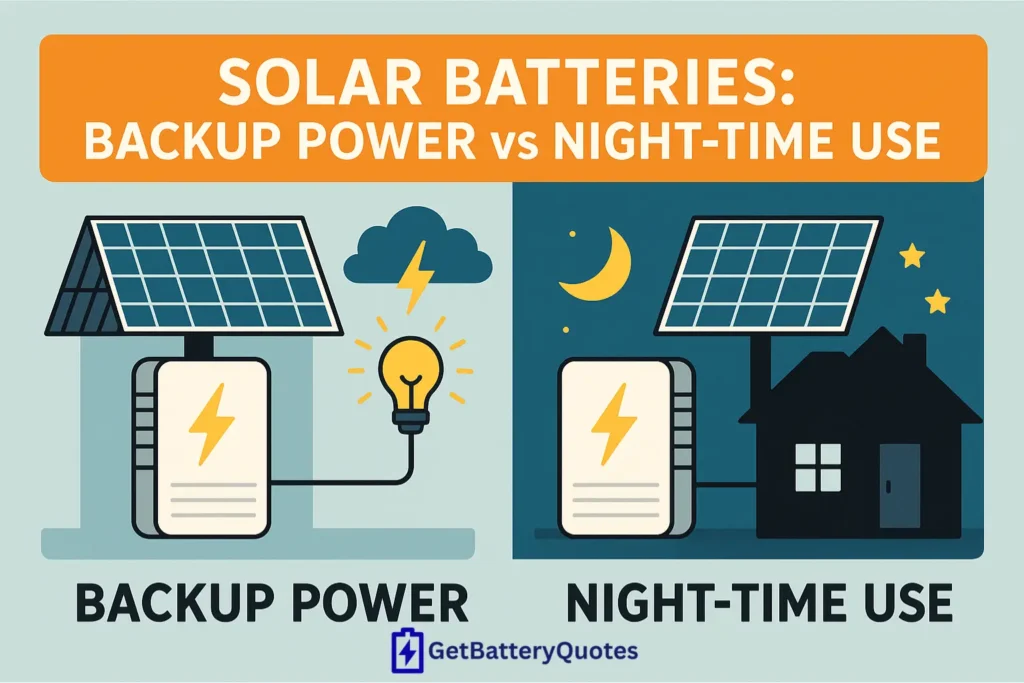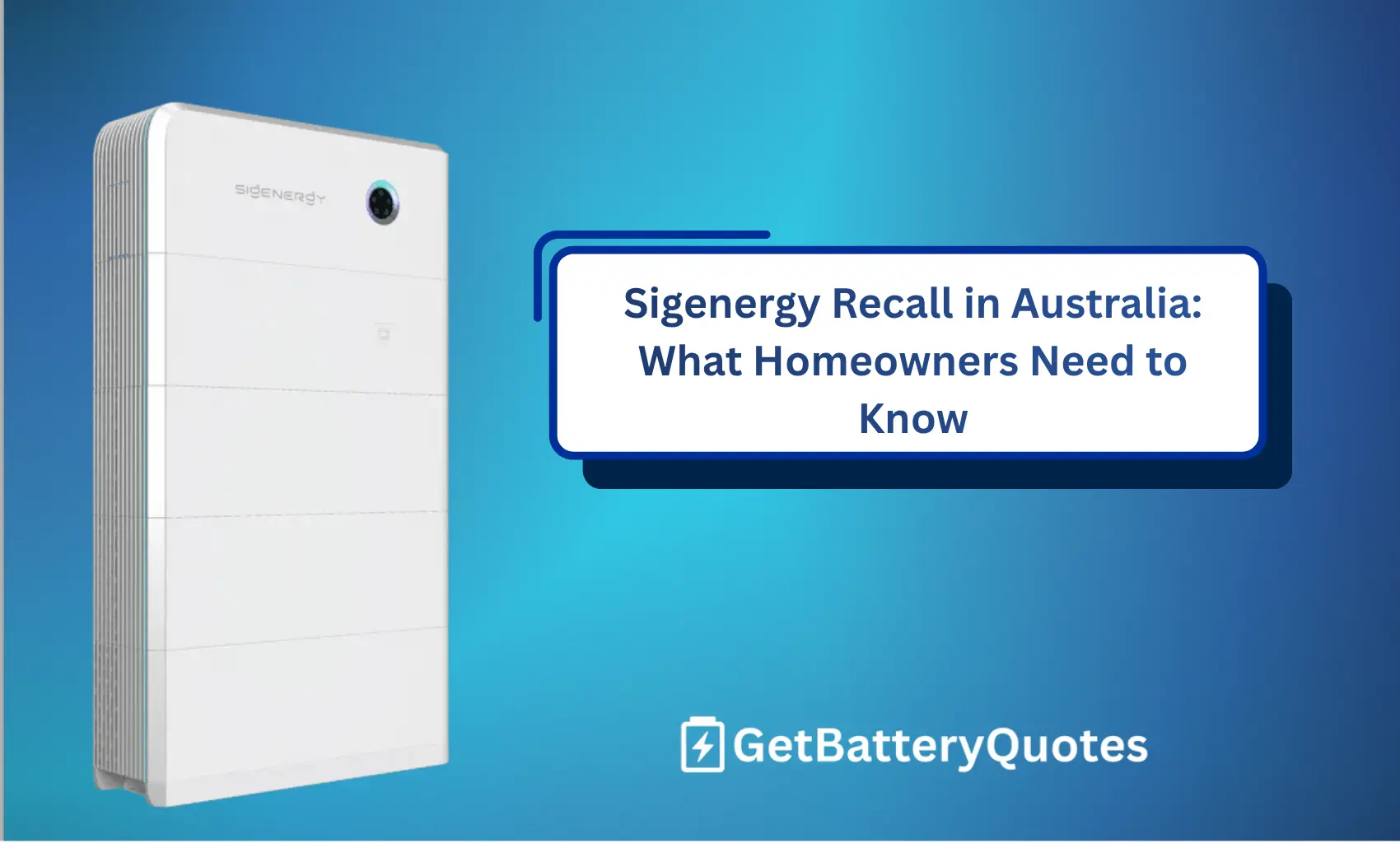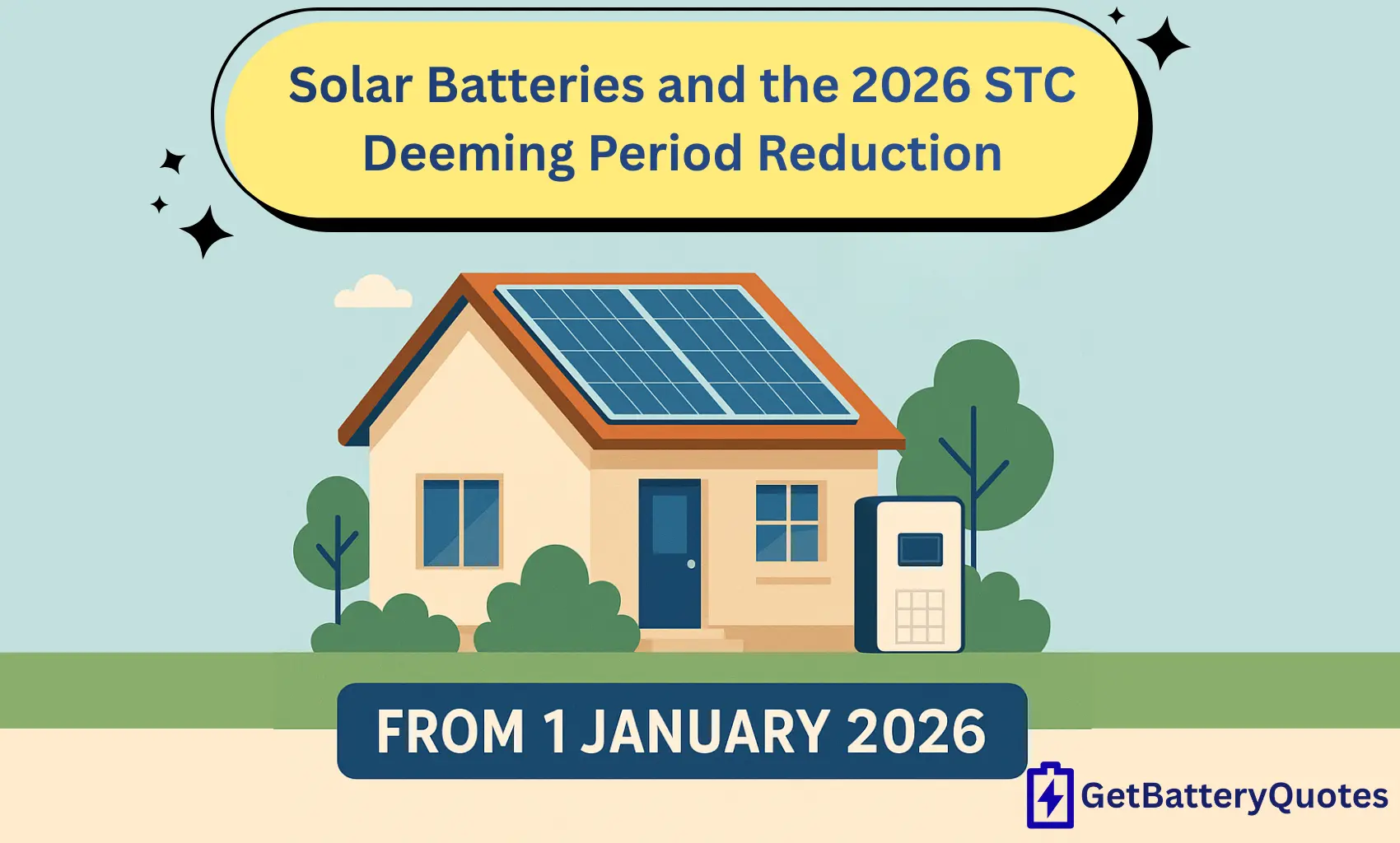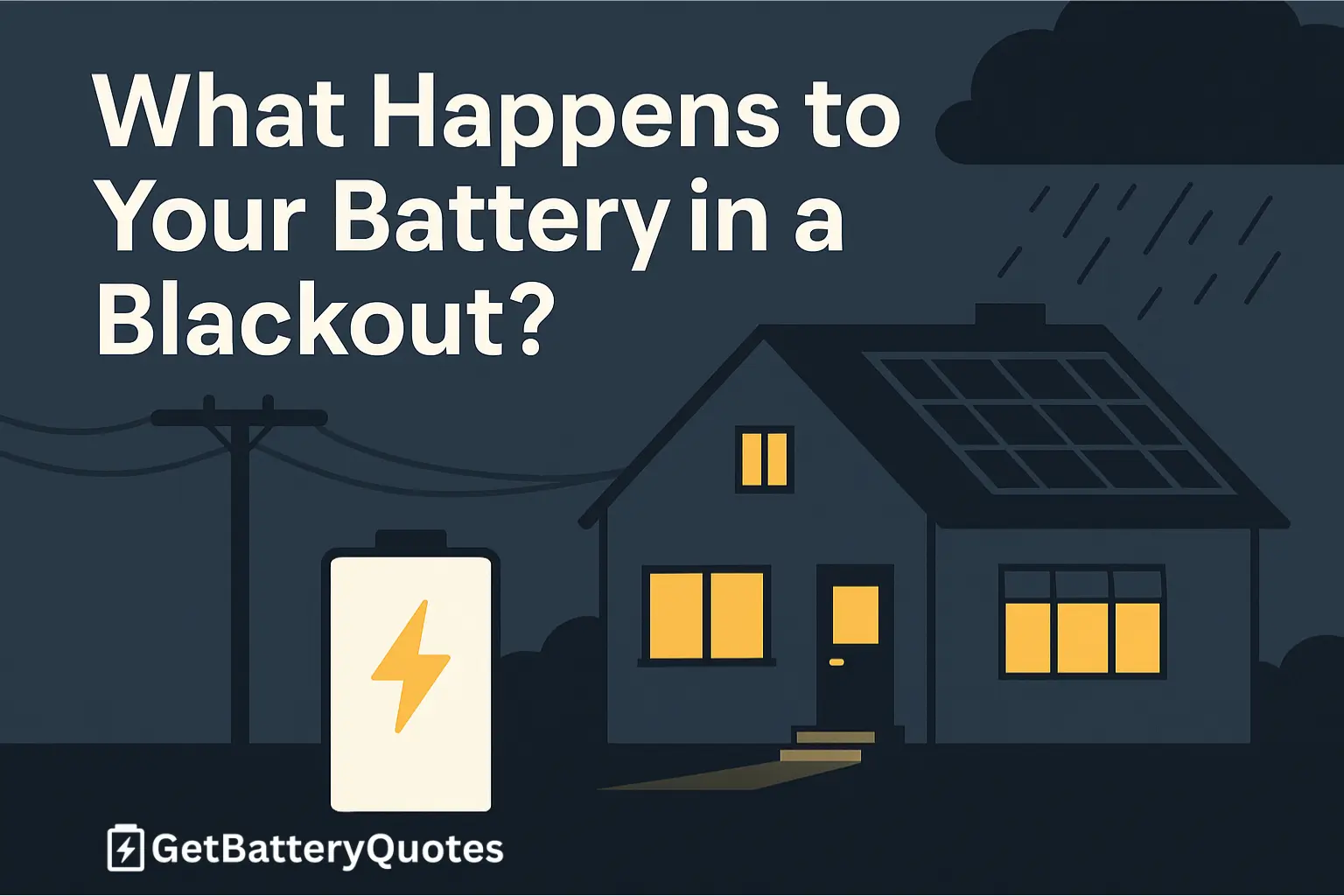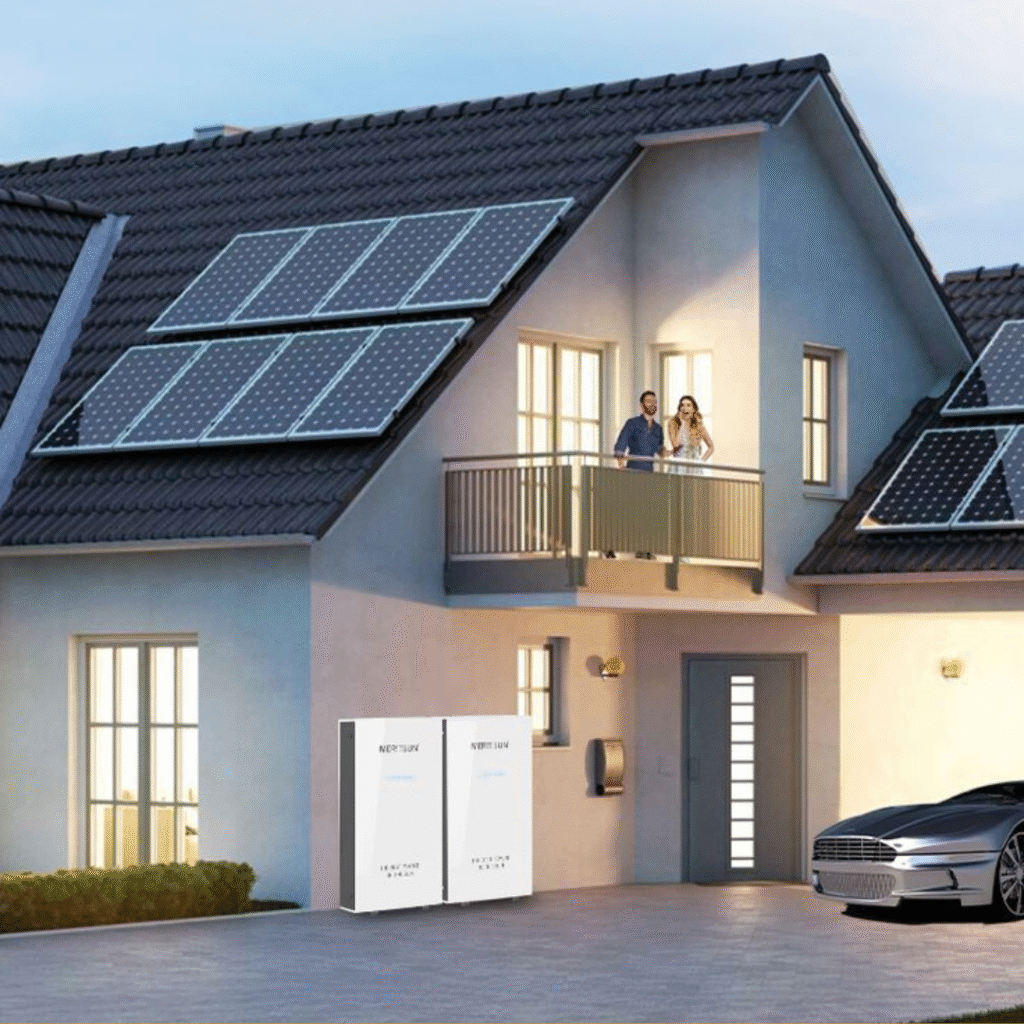For many Australian households, installing a solar battery comes with two main goals in mind: reducing energy bills and protecting the home during blackouts. But not all batteries are set up the same way, and there’s often confusion between night-time solar use and backup power. While they might sound similar, they serve very different purposes.
In this article, we’ll break down the difference, explain how each works, and help you decide which one makes the most sense for your home.
Night-Time Use: Shifting Solar to When You Need It Most
Most households use the bulk of their electricity after the sun goes down think cooking dinner, running the washing machine, or cooling the home in the evening. Without a battery, you’re forced to draw this energy from the grid, often at peak rates.
A solar battery changes that. During the day, your solar system charges the battery. At night, instead of buying electricity, you simply use the stored solar power. This is called load shifting or solar self-consumption.
Key Benefits of Night-Time Use
- Lower bills: Every kilowatt-hour stored and used at night is one you don’t pay the retailer for.
- Better solar value: You keep more of your own solar instead of exporting excess at low feed-in tariff rates.
- Optimized with rebates: With federal and state incentives now in place, batteries around 15–20 kWh are becoming the new sweet spot for households looking to cover their evening demand.
Backup Power: Keeping the Lights On in a Blackout
Night-time use saves you money, but it doesn’t guarantee the power will stay on during an outage. A standard grid-connected battery will automatically shut down with your solar inverter for safety reasons when the grid goes down.
To have backup power, the battery system must include additional hardware such as a backup gateway or hybrid inverter that can isolate your home from the grid and keep critical circuits running.
What Backup Power Provides
- Blackout protection: Keep essentials running lights, fridge, internet, medical equipment — even when the grid is down.
- Peace of mind: Particularly important in areas prone to storms, bushfires, or unreliable networks.
- Whole-home backup (sometimes): Premium systems like the Tesla Powerwall 3 or Sigenergy SigenStor can power the entire home, though this often requires larger capacity batteries.
Night-Time Use vs Blackout Power. The Simple Difference
Think of your battery like a water tank:
- Night-Time Use is like filling your tank with rainwater during the day and using it later when the mains water is more expensive. It saves you money, but if the mains water gets cut off, you still can’t run your taps unless your system is set up for it.
- Backup Power in a Blackout is like having special plumbing that disconnects your house from the mains water and lets you keep using what’s in your tank. Without this setup, your taps will stop working even if the tank is full.
In simple terms:
- Every solar battery can power your home at night.
- Not every solar battery can power your home during a blackout. For that, you need extra hardware and the right system design.
Can Solar Panels Work During a Blackout?
This is a common point of confusion. In most AC-coupled setups (including many cheaper battery packages), your solar panels will also shut down during a blackout. That means you’re running only on stored energy, not freshly generated solar.
Some DC-coupled systems, or those with the right hybrid inverters, can continue generating solar during a blackout. This allows your battery to recharge during the day, extending your backup time.
If you see “too good to be true” battery offers, check carefully whether the system can power your solar panels during outages. Many budget options won’t.
Which One Do You Need?
- If your priority is lower bills: Night-time use is enough. Almost every battery system today can handle this.
- If your priority is security and resilience: Choose a system with proper backup power capability.
- If you want both: Look for hybrid systems with backup and enough capacity (15–20 kWh is now typical, but electrified homes with EVs will need more).
Final Thoughts
The best solar battery setup depends on your household needs. Night-time use maximize the value of your solar, while backup power provides peace of mind when the grid goes down. Many homeowners choose a system that delivers both but it’s important to understand that they’re not the same thing.
Before committing, ask your installer whether the system will power your home during a blackout, whether your panels can still generate in that situation, and what battery size will suit your household. With the right setup, your battery can save you money every day and keep your home running when you need it most.

